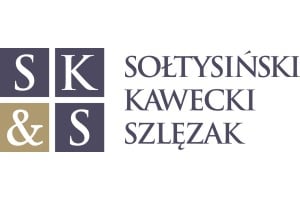In recent years, court proceedings in Poland have been taking increasingly longer. The natural answer to this is arbitration, but unfortunately, in business reality even arbitration turns out to be too long for the parties. Probably for this reason we observe seeking for dispute avoidance by incorporating different kinds of dispute-resolving mechanisms into contracts. Does it have a chance of working?
The above-described trend applies in particular to the expert determination clauses. The mechanism is simple: if a dispute between the parties pertaining to a particular non-legal issue arises, the parties will appoint an independent expert to determine who is right. We observe that the number of such clauses in commercial contracts has increased significantly in recent years.
A similar idea lies behind the dispute adjudication board (DAB) mechanism known from FIDIC model contracts. DAB was designed to resolve all disputes arising between the parties during execution of a contract. The common understanding was that DAB should be preferably composed of engineers who – if needed – have an expert knowledge essential to resolve the dispute between the parties. Formerly, it had been a common practice in Poland for the DAB part of FIDIC Clause 20 to be crossed out from FIDIC contracts. The pioneers of the exclusion of the DABs mechanism from FIDIC contracts were public sector investors. Private entrepreneurs have followed in their footsteps, as due to the ongoing dynamic development of public infrastructure projects in Poland public sector investors represent a massive share of the largest construction contracts in Poland and are shaping market trends for construction projects. Now, there’s an ongoing discussion about reintroducing DABs into construction contracts based on FIDIC model contracts. The discussion is being fuelled by the hope that this will speed up the resolution of disputes, which are an integral part of almost every major construction project.
However, while the use of expert determination clauses and FIDIC’s DAB is long established in Anglo-Saxon legal cultures, such mechanisms may not be effective in the Polish context. Common-law contractual clauses on expert determination or DAB directly transposed into Polish law may prove to be lex imperfecta. Breaching these clauses and skipping or bypassing the expert determination/DAB mechanism may not trigger any significant sanctions, rendering these provisions toothless.
FIDIC models are widely used around the world, which creates the assumption that they operate in exactly the same way. However, different FIDIC-based contracts are governed by different national laws and the courts of different countries assess the validity, meaning and effect of the provision of such FIDIC-based contracts, including the DABs mechanism, in the context of different legal frameworks. This also applies to other expert determination mechanisms, which appear to be international standards, but nevertheless may function quite differently from one jurisdiction to another.
In many jurisdictions, if a contract provides for expert determination/DAB, the use of this mechanism is mandatory. If a party tries to bypass this mechanism and refer an issue that was to be determined by an expert directly to arbitration or a court, such an attempt will be doomed to failure; the arbitral tribunal or court will simply reject such a claim as premature.
This is not the case in the Polish jurisdiction. Polish courts and arbitral tribunals generally do not consider that skipping an expert determination mechanism is a reason to reject a claim without considering the merits of the case. Instead, depending on the circumstances of the particular case, they either determine the issue that the expert was supposed to have determined themselves, or they order the parties to carry out expert determination, suspending the proceedings until the parties comply with this order, or they find that, in the absence of an expert determination, the claim is unfounded and decide on the merits of the case by dismissing the claim.
In the case of DABs in FIDIC contracts, Polish courts most often find that referring a dispute to the DAB is in fact not mandatory and that either party may refer the dispute directly to court or arbitration. They derive such a conclusion from the constitutional right to a court and oftentimes also from FIDIC sub-clause 20.8, which states that a dispute may be referred directly to arbitration when ‘there is no DAB in place, whether by reason of the expiry of the DAB’s appointment or otherwise’. The Polish courts recognise that the ‘otherwise’ could mean a situation where the parties fail to appoint a DAB or to request an appointing entity to do it, so no DAB is appointed. This was the approach taken, for example, by the Court of Appeal in Gdańsk in its judgment of 28 November 2013, case No. I ACa 550/13, and subsequently confirmed by the Supreme Court in its judgment of 19 March 2015, case No. IV CSK 443/14.
Whether or not skipping the dispute avoidance mechanism blocks the possibility of taking the dispute directly to arbitration or court, it still remains a breach of contract. Polish law does, of course, provide for sanctions for breach of contract, but these tend to be ill-suited to a breach involving bypassing expert determination/DAB mechanism. The primary sanction for breach of contract is liability for damages. While the occurrence of damage is an indispensable element allowing application for sanction and being awarded damages, in the context of the expert determination/DAB mechanism, bypassing such mechanism and referring the dispute directly to arbitration or court, it may be challenging to identify whether and what damage it inflicts on the other party.
The highlighted difficulties with the effective application of the expert determination/DAB mechanism in Polish contracts might be – to some extent – mitigated. However, in order to do so and to provide entrepreneurs with an effective, fast-track dispute resolution scheme, expert determination/DAB clauses must be carefully drafted, taking into account the nuances and peculiarities of the Polish legal framework and case law.
